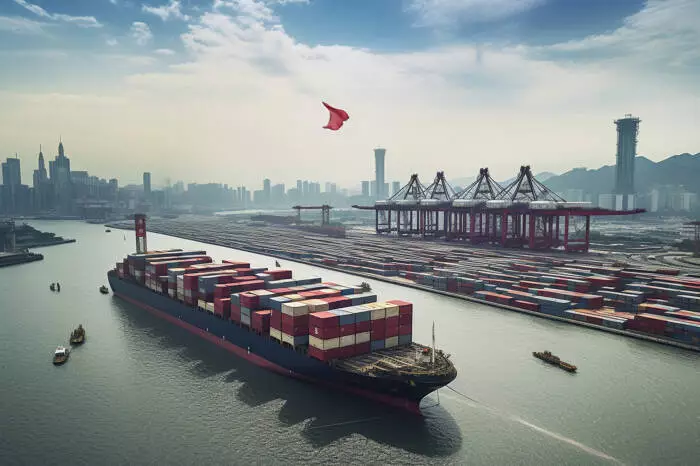The recent fluctuations in the strength of the US dollar have sparked debates concerning geopolitical and economic implications, particularly in the context of US-China relations and China’s economic outlook. Even with an incoming administration signaling potential reductions in import tariffs, the immediate impact appears minimal. While the euro has seen significant appreciation, the Renminbi (RMB) continues to face substantial domestic pressures. It’s vital to examine these underlying factors that are not solely attributed to foreign policy but also stem from China’s current economic condition.
The December report from Caixin, a prominent indicator of China’s private sector performance, has raised alarms over the efficacy of Beijing’s intended stimulus measures. The Manufacturing Purchasing Managers’ Index (PMI) saw a substantial drop from 51.5 in November to 50.5 in December, indicating a slowdown. Most concerning is the fact that this marks a fourth consecutive month of job cuts, highlighting weakening overseas demand as a critical factor. Similarly, the Services PMI shows a dwindling labor force in that sector, with staffing reductions being a direct response to less favorable market conditions.
An additional layer of complexity is that youth unemployment has reached a staggering 16.1%, starkly contrasting with the nation’s overall unemployment rate of only 5%. This presents a challenge for the government as they seek to implement measures that can genuinely stimulate consumption and engagement in the labor market. The job market’s stabilization is crucial for restoring consumer confidence, a fundamental component missing from China’s economic strategy.
As we delve deeper into the consumer sentiment landscape, it becomes clear that the plummeting consumer confidence reported in Q3 of 2024 poses a significant obstacle to Beijing’s plans for economic recovery. This erosion in confidence can severely restrict private consumption, further aggravating the economic slowdown. Economists assert that confidence can be bolstered through enhanced labor market conditions and policies aimed at increasing household incomes.
Moreover, the fear instigated by geopolitical tensions can exacerbate these worries. It is imperative that the Chinese government navigates carefully to re-establish consumer assurance, as one misstep could lead to heightened anxieties that stifle economic growth.
Fractured relations between the US and China serve as a crucial backdrop to the economic challenges faced by China today. Observers note that improving these relations could be vital to fostering a better climate for consumer and business sentiment. Any thawing in trade tensions could invigorate private sectors, create job opportunities, and significantly improve consumer confidence, thereby stimulating demand.
Nevertheless, recent actions by the Biden administration seem aimed at deepening existing rifts rather than healing them. For example, the recent designation of several Chinese tech giants, such as Tencent and COSCO, on the Section 1260H List by the US Defense Department portends potential sanctions. These measures threaten to alienate Chinese firms from US partnerships and exacerbate economic strains between the two nations.
As we look forward, the trajectory seems uncertain. The earlier moves by the Trump administration, including appointing ex-Senator David Perdue as Ambassador to China, suggested a path towards improved relations. Yet, the simultaneous warning against countries abandoning the US dollar reiterates a protective stance toward American economic dominance. Furthermore, China’s advocacy for BRICS, a coalition that actively seeks alternatives to USD transactions, poses a potential hurdle in future discussions.
The ripple effects of this strained relationship are palpable in market performances across both Hong Kong and mainland China, where indices have seen notable declines this year. This trend highlights investor anxiety over the implications of a potential trade war and the enduring impact of ongoing deteriorating diplomatic relations.
While efforts to stimulate economic growth in China are underway, they are intricately tied to the nation’s relationship with the US. Factors such as labor market stability, consumer confidence, and international trade dynamics will play critical roles in determining China’s economic future. As the global landscape evolves, it is crucial for policymakers in Beijing to adapt and respond effectively to the challenges posed both internally and externally, ensuring sustainable growth in the face of adversity.

